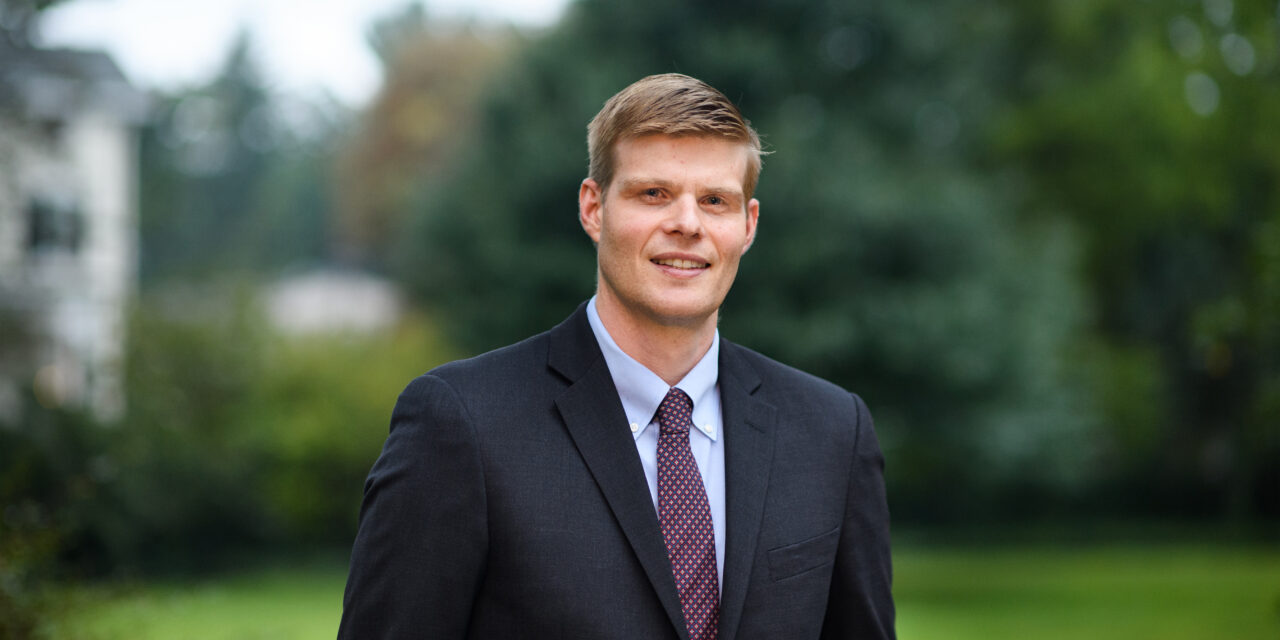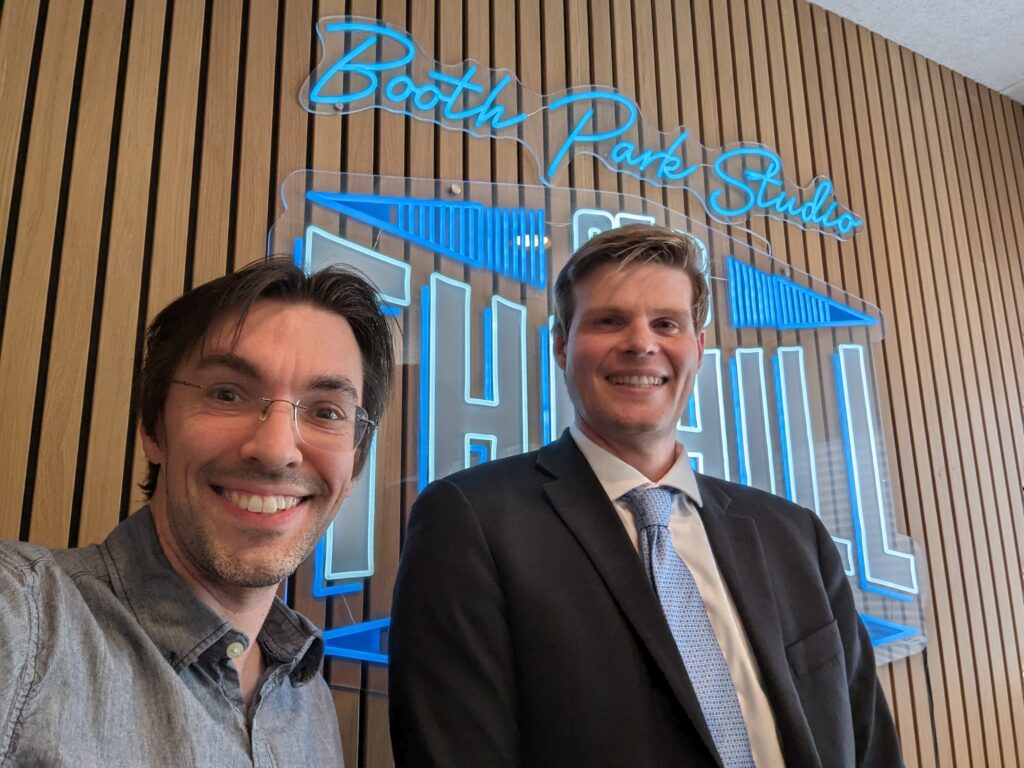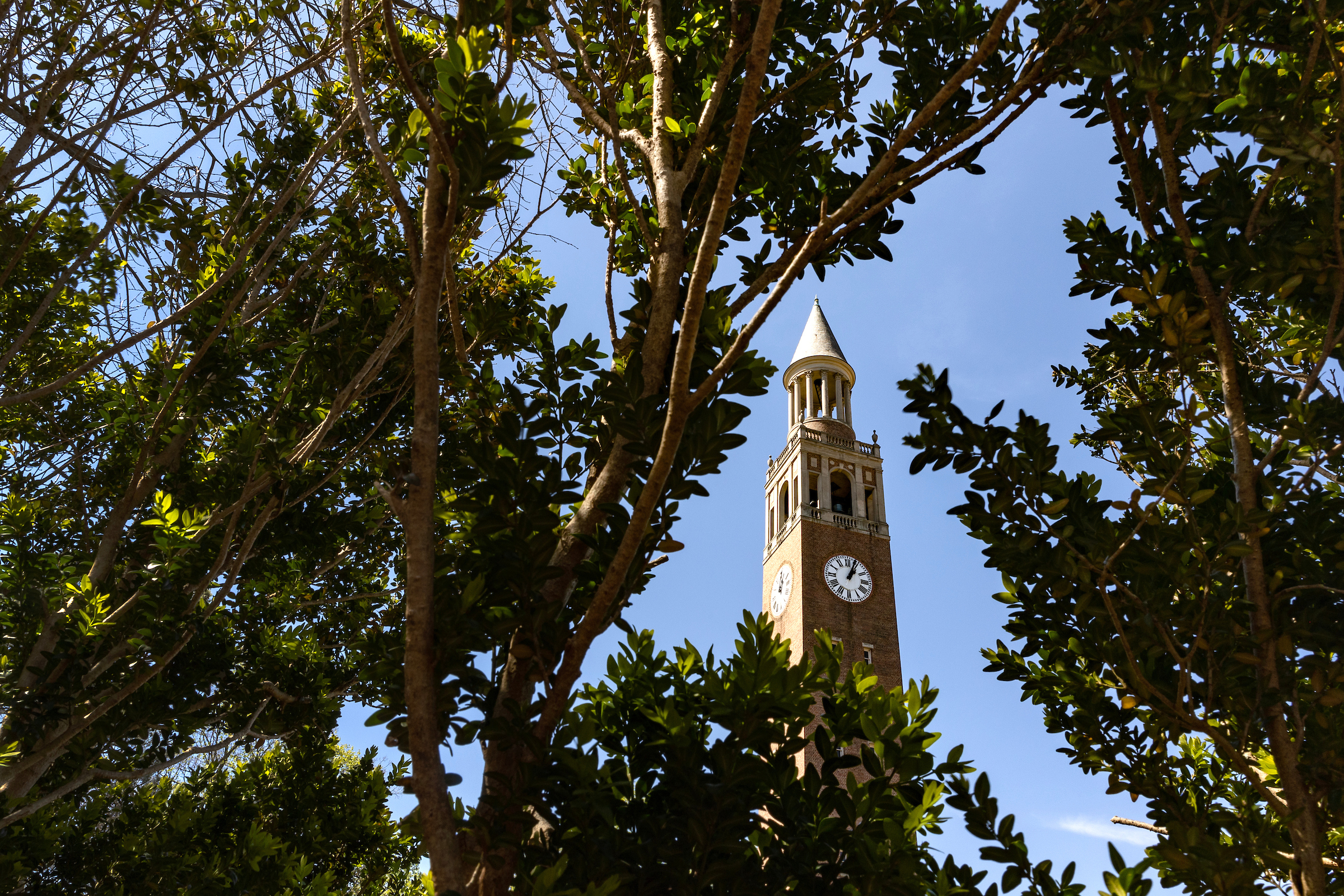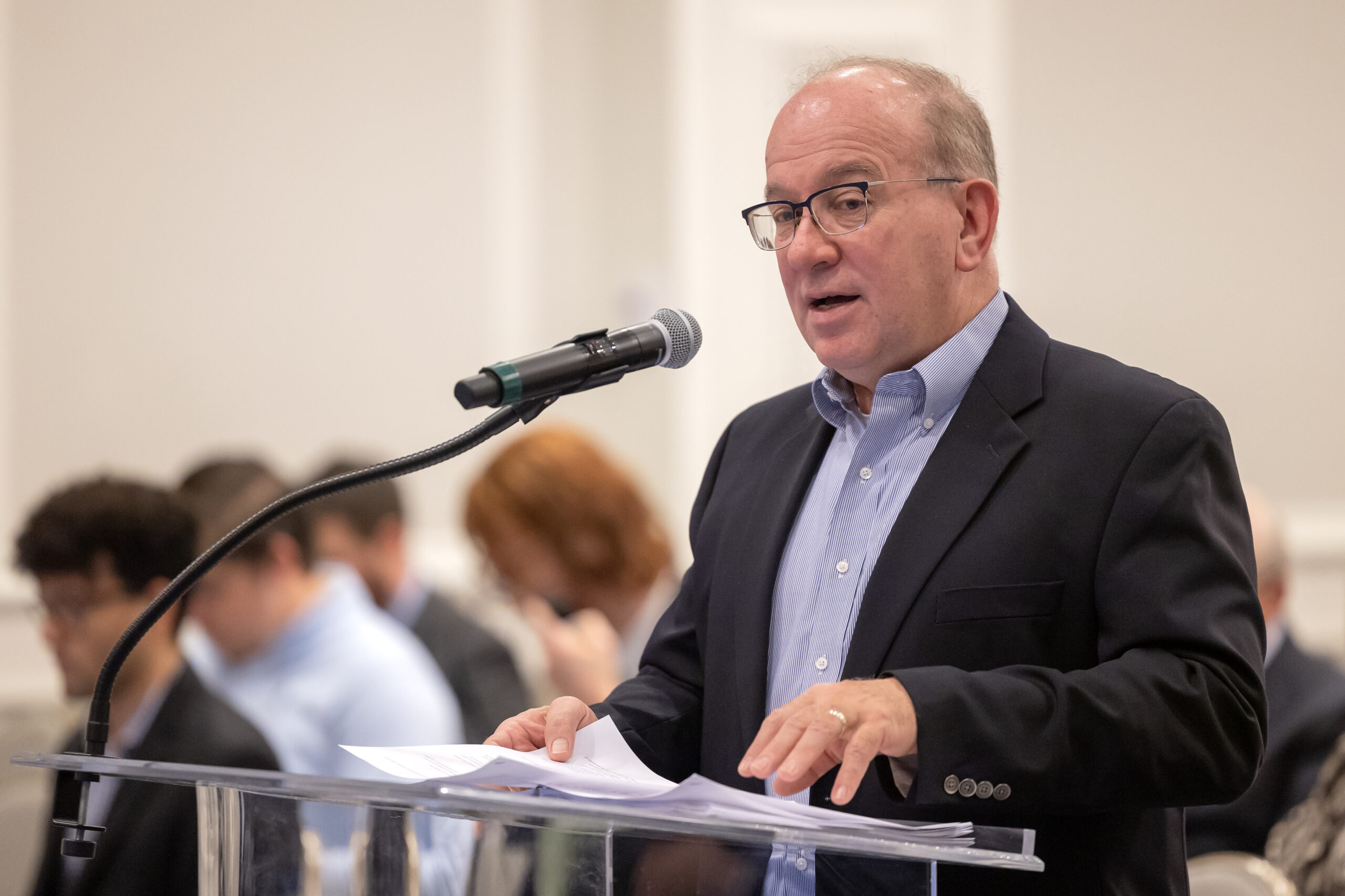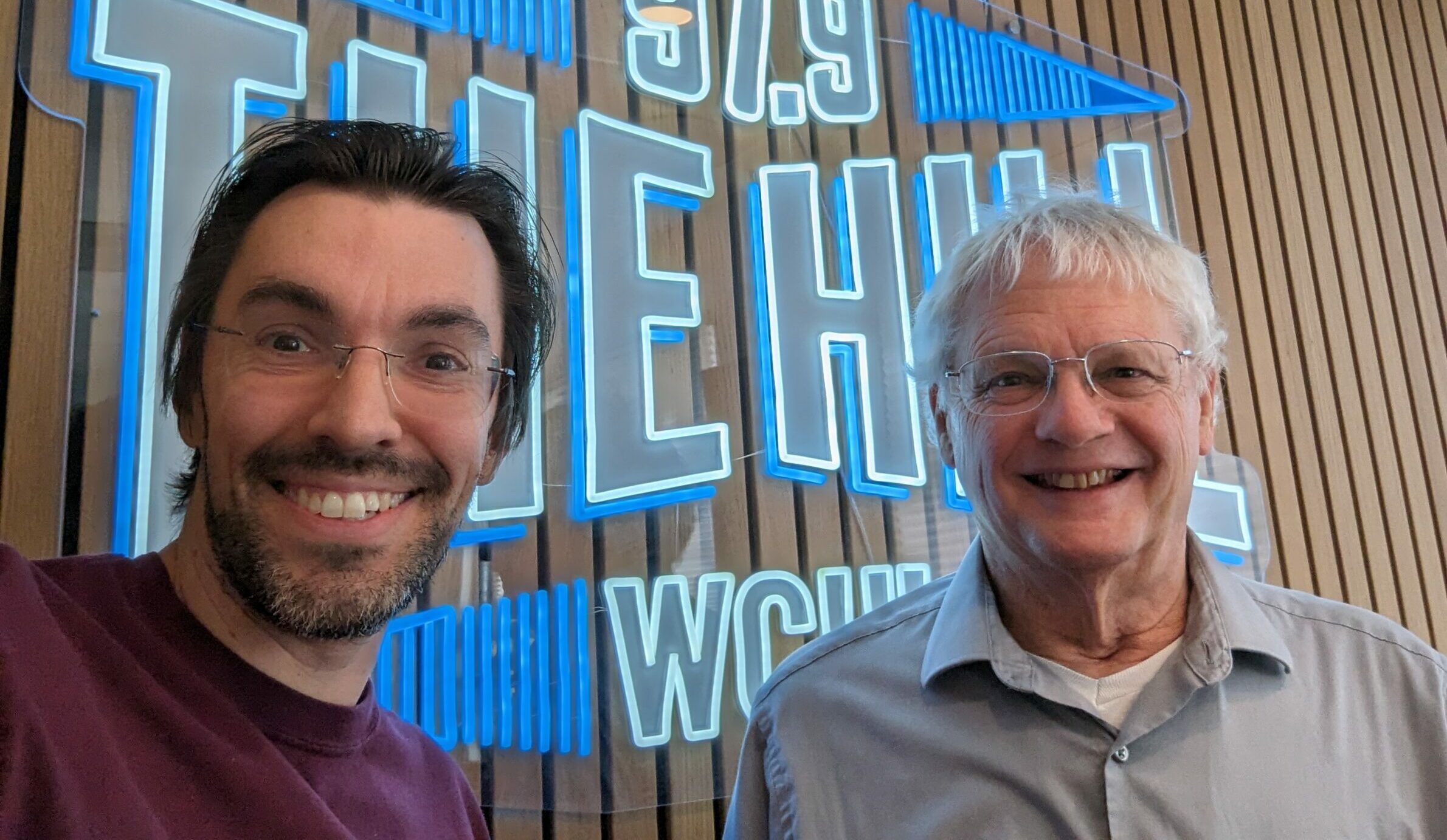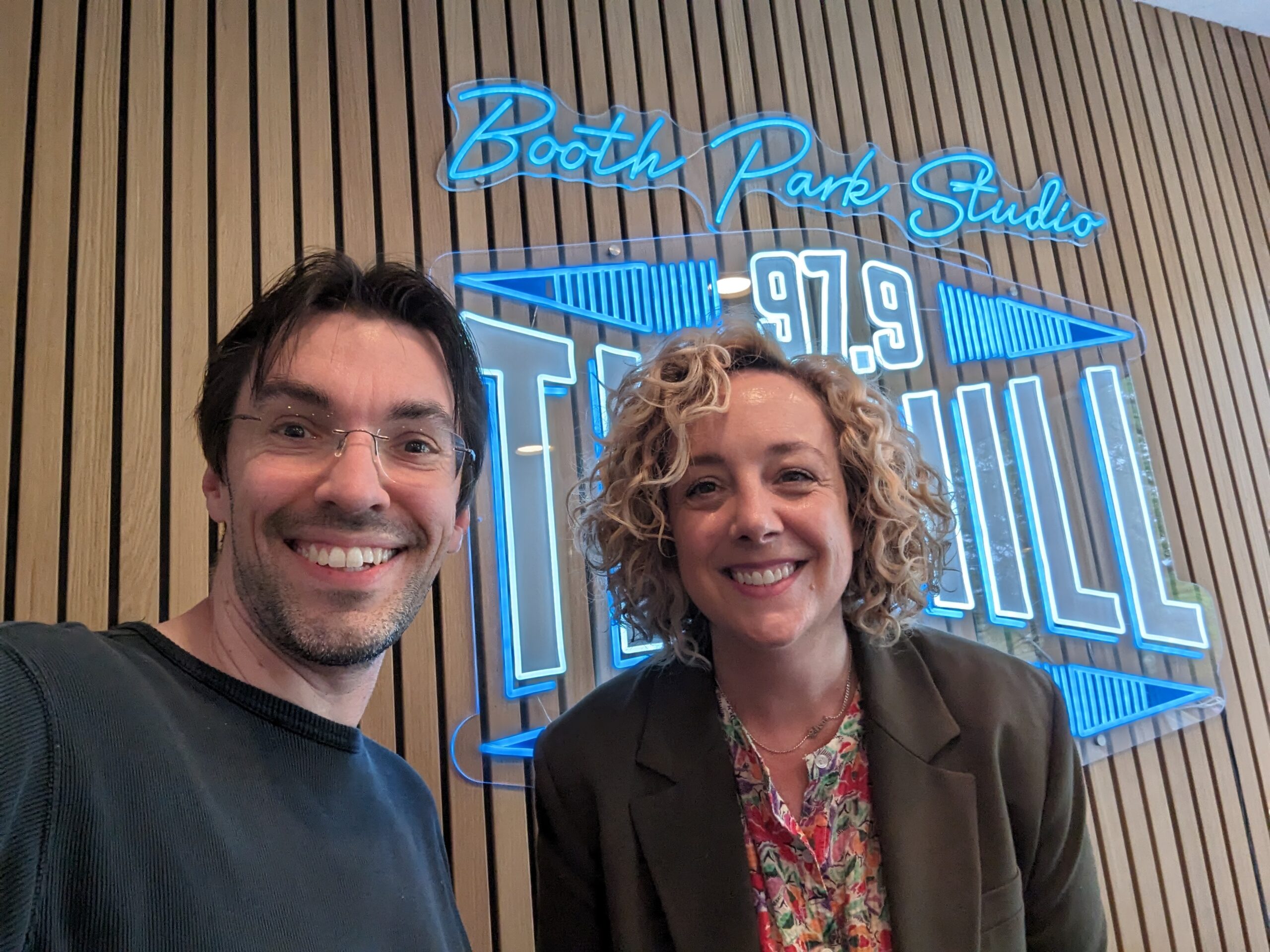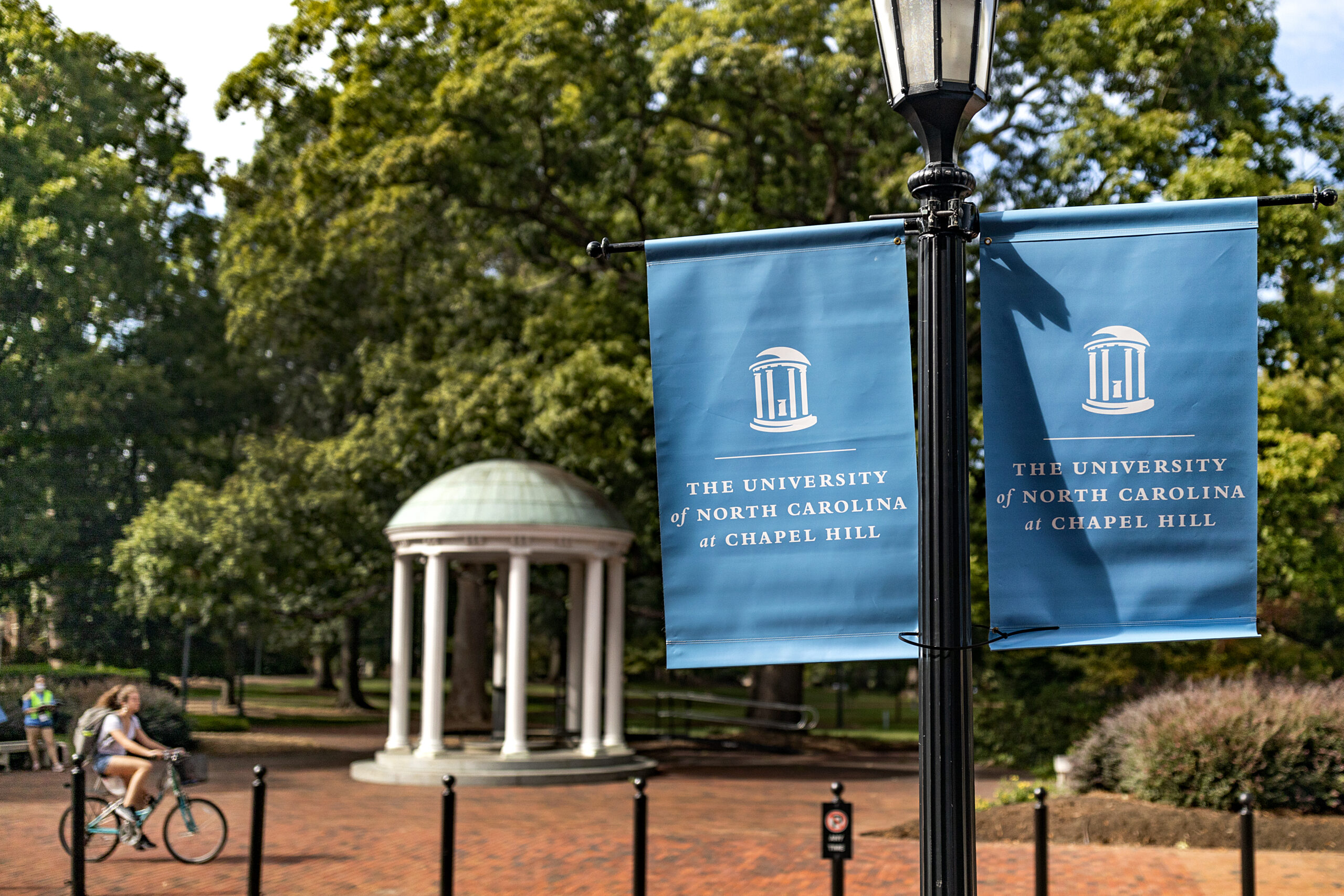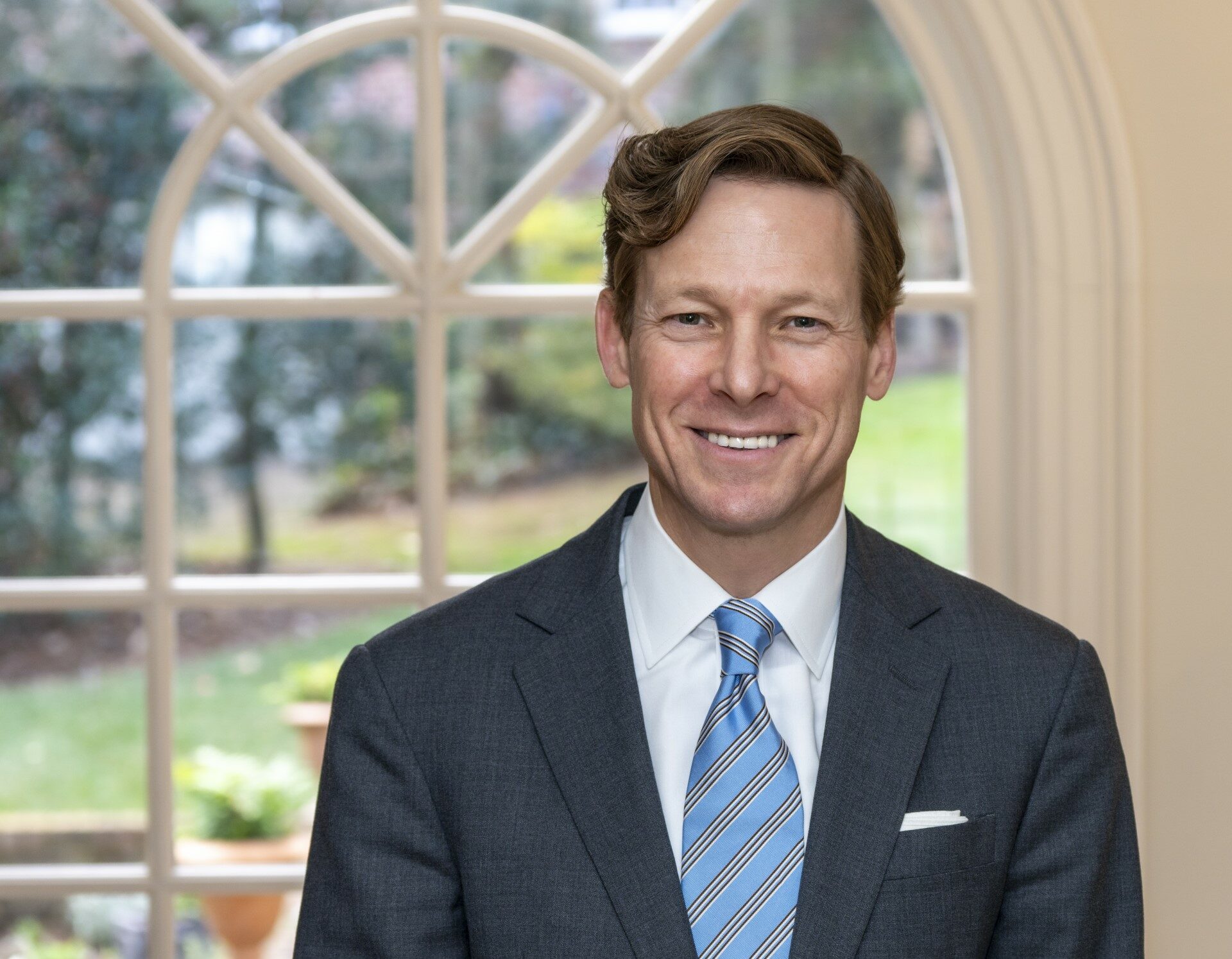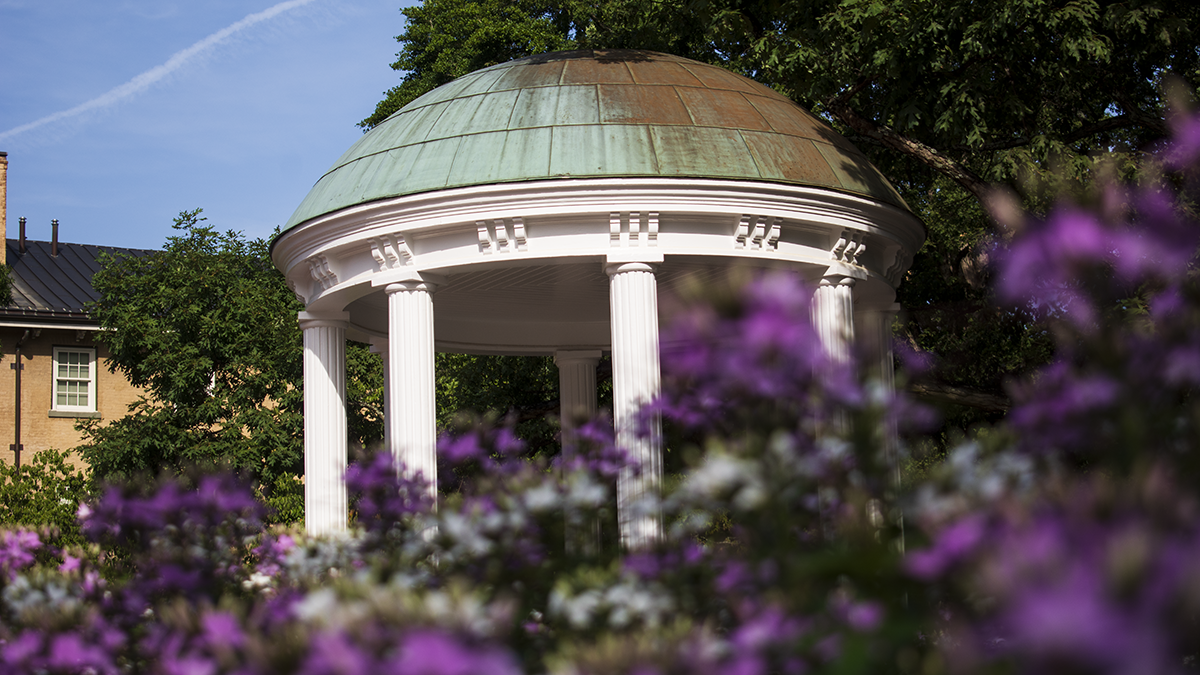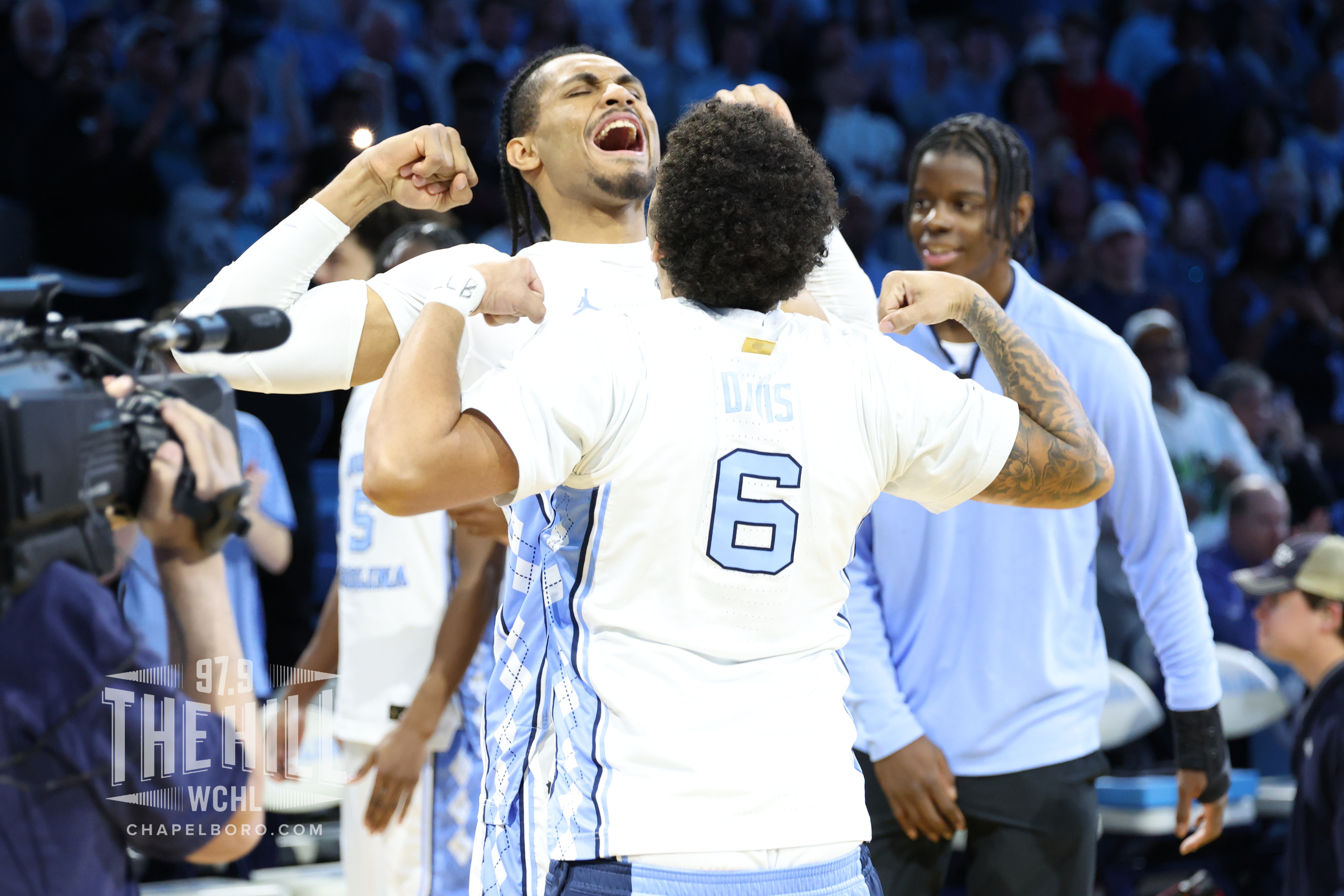The academic year is over, and UNC is quiet again heading into the summer. But even now, there’s a lot of activity on campus as folks gear up for the fall.
One recent notable development has been the creation of UNC’s new School of Civic Life and Leadership. The school was developed with an eye to promoting civil discourse and democratic values, a mission that’s universally recognized as vital at a time of great polarization. But the school was also established under a cloud: it came as Republican lawmakers were pressuring UNC to hire more conservative faculty, leaving many believing that was its true purpose. Those concerns diminished a bit after the school announced its first faculty cohort – nine UNC professors, from various fields, with a wide range of backgrounds and perspectives – but suspicions still remain.
Now it’s up to the school’s new dean, Jed Atkins, to guide the ship in the right direction. Atkins is a political philosopher whose books include “Roman Political Thought” and “Cicero on Politics and the Limits of Reason.” He comes from Duke, where he spent 15 years directing the university’s Civil Discourse Project – a project with a very similar mission to UNC’s new school.
97.9 The Hill’s Aaron Keck spoke recently with Dean Atkins. Click here to listen to the conversation in full; the transcript below has been lightly edited for clarity.
Aaron Keck: In the work you did at Duke, what were some notable successes that you can bring to UNC?
Jed Atkins: My basic philosophy was bringing students together to explore questions of human and civic flourishing from their different partial perspectives, in order to transcend those perspectives. Transformative Ideas, a program for sophomores, reached one sixth of the sophomore students last year – and what we found was (that) by creating an intellectual culture, we had students who became friends with those from very different backgrounds. We had students who were more likely to have faculty mentors. And we created a place where students could explore questions of meaning and significance, both in their personal lives and civic lives. That was really quite wonderful.
The other thing that we did: for the last three years, we have had a Teaching Civil Discourse summer seminar for faculty members. We’ve had 60 faculty, from liberal arts schools, public schools, private schools, and community colleges, all coming together to learn and to be equipped to teach courses in the classroom that help our students disagree better.
Keck: So Civic Life and Leadership at UNC: what’s the goal of the school? What’s the mission?
Atkins: The mission of the school is to prepare our students for the responsibilities of citizenship and civic leadership, by fostering a free-speech culture, and providing an education that is grounded in the human search for meaning, and building out the capacities for civil discourse and wise decision making. And also (to) have some kind of understanding of the institutions and values of the American political tradition.
Keck: Tell us about some of the courses.
Atkins: We have one course on the foundations of American democracy and its institutions. And then we have another course that provokes civil discourse in the classroom, that teaches students the skills (and) the capacities to disagree better about the political issues that divide us, and then also practice having conversations about these issues.
Keck: I think we all could use some skills training in civil discourse. What’s skill number one? What do you try to instill first and foremost in folks?
Atkins: First and foremost is a type of intellectual humility: understanding that we all come from different perspectives, that we have different knowledge, and that we can learn from one another. And then a second thing is charity: thinking the best of the other person in their arguments. We’ve seen those two things, time and time again in the classroom, have been deeply transformative.
Keck: The school was created amidst a couple of controversies, two big ones. The first was the way the school was created: faculty members, I think, felt like they were shut out of the process. That wasn’t standard procedure. Now that the school exists, what are you doing now, and what can you do, to make sure that the faculty is in on everything that’s happening?
Atkins: I can’t speak to the things that happened before I showed up – but origins are not destiny. I get the fact that you have a Republican legislature that supported the creation of the school. And of course, this is not the first time that an initiative in state education involved legislation (that) was initially contentious – for instance, the legislation that created the current UNC system. But as I said, origins are not destiny. And I can’t think of anything much less contentious than the idea that we need to be providing students with a liberal arts education that prepares them with the weighty responsibilities of democratic citizenship. So for me it’s about the future, and the mission, and being able to, again, hold out a capacious view of political and civic flourishing that invites all in, from their different perspectives, into a shared undertaking that lifts them beyond those partisanships that gridlock our country – that’s something I think everybody can get behind.
Keck: And I think that goes along with controversy number two: I think pretty much everyone gets behind that mission, (but) there’s concern that the school is – not to put too fine a point on it – a Trojan horse to bring in a bunch of conservative firebrands and stick ’em in front of classrooms. So what do you do, not only to do (the mission) right, but also to dispel the belief that that’s the real purpose of the school?
Atkins: Something that’s really important: as soon as you accept a leadership job, you’re on that job. So even before (my first day), I was on campus having meetings with the faculty to work together to develop a mission along the lines of what I just shared. (And) in order to provide integrity of mission, you follow with the mission, you lead with the mission, you hire into the mission, you do your curriculum from the mission. So for me, the best way to dispel these sorts of questions is to be upfront with the mission, lead with the mission, hire into the mission, build with the mission. And if it’s a mission everyone can get behind, the product is going to be aligned with that (same) mission.
Keck: And I’ll add to that: you have an essay on John Rawls in (the journal) American Political Thought, which is a product of the Jack Miller Center – and I think the Miller Center is a really good example of an organization that does this right. Jack Miller was a conservative, there was a bit of politics behind creating the center – but it’s mission forward, it’s values forward, and you can see it in the product. I got a chance to do a seminar with the Miller Center 10 years ago, and it was one of the best things that I ever did. The discourse was amazing. And I think that’s a fantastic example of an organization – and there are a few out there – that really focus on doing this and doing it right. So it absolutely can be done. And there’s a lot of best practices that already exist.
Atkins: Thank you. And again, it shows: when you follow with the integrity of the mission, and you show the integrity of the values, and you have something that is truly a capacious mission, such as providing and preparing students for the responsibilities of citizenship in a democracy, and when you’re aligned behind that – you can have success, and integrity, and have something people from across the spectrum (can) get behind.
Keck: So your research is on Cicero, Roman political thought. How does that inform your work here?
Atkins: Cicero was a philosophical skeptic, and his best friend was an Epicurean, a dogmatist. So Cicero showed in his life (that) you can have friendship across difference. Cicero also wrote dialogues to provide each side of a given question a fair hearing, to present the best arguments for and against – say, the existence of God, or the idea that there can be absolute truth, these sorts of questions. So in that sense, I think my early work on Cicero very much resonates in this sort of open dialogue and debate that I hope to bring to bear in higher education.
Keck: And especially at a time of polarization – because Cicero’s time was also a time of polarization, right? So you can accomplish this mission even when the world around you is heavily divided.
Atkins: And that makes it all the more important. I often like to say this is a project that’s based in hope. It’s based on a type of democratic hope that our democracy can become stronger, (and) that we can provide a type of civic education that will prepare our young people for leadership in their careers, their vocations, and their civic capacities. And if I didn’t believe that, I wouldn’t have taken on this job, and I wouldn’t be devoting my life to this type of civic education.
Keck: We’ve got an opportunity now to realize this in practice on campus, (with) the demonstrations for and against Palestine and the war in Gaza. The students are informed and engaged, but also extremely polarized. Emotions are high. It’s an issue that goes straight to the heart of identity, (and) it’s very much a life-or-death issue for people, so that’s to be expected. How do you promote civil discourse when emotions are, very understandably, as high as they are?
Atkins: UNC has a great history of free expression, and protests are part of that history. The work that I’ve found very effective (involves) bringing people into community where they can have trust, where they can have conversations with those who disagree, where they can get to know people as more than (just) their views or identities on one or two topics.
I see this work increasingly as human work. I have a lot of (faith) in – and I will do this at Carolina – hospitality, having meals together, beginning to have conversations over food, which is a very human action. It’s very hard to dehumanize the Other when you’re doing a very human thing such as eating. So I find some of the secret sauce is actually pretty straightforward. It’s bringing people together into spaces where you can have human interactions and human conversations. And I find that’s been the most effective.
Featured photo via UNC-Chapel Hill.
Chapelboro.com does not charge subscription fees, and you can directly support our efforts in local journalism here. Want more of what you see on Chapelboro? Let us bring free local news and community information to you by signing up for our newsletter.

